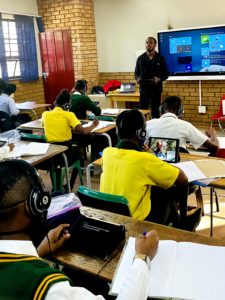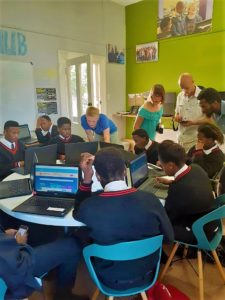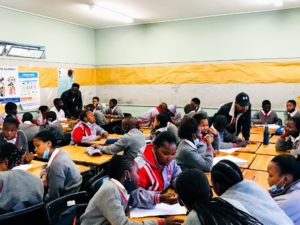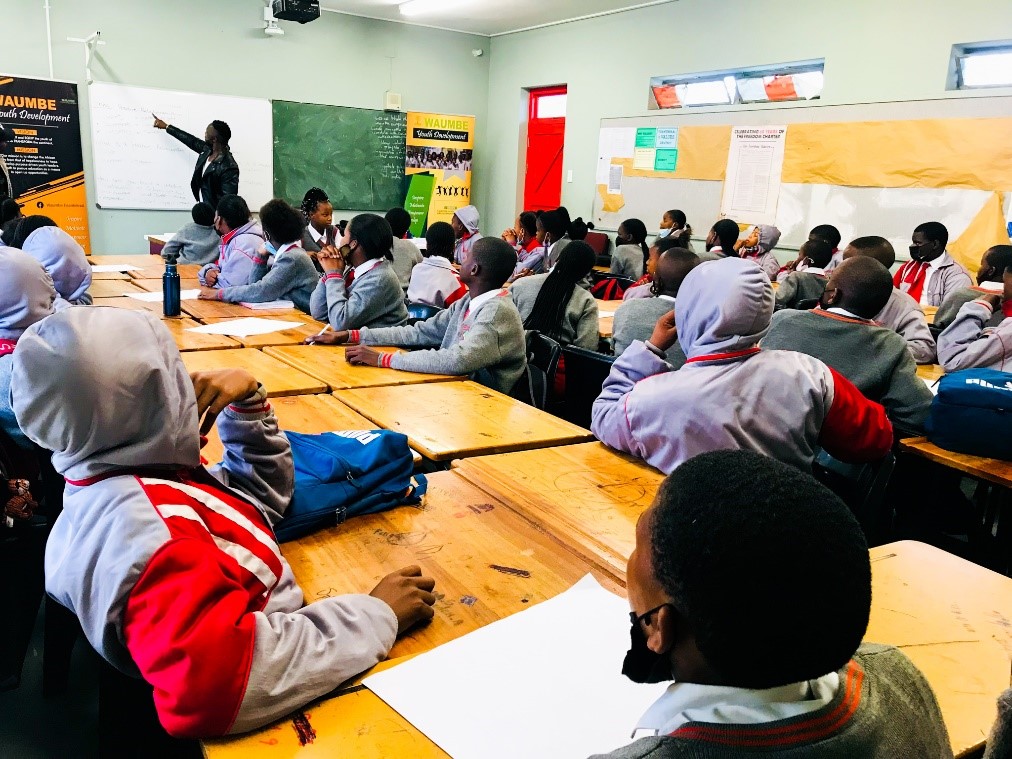If there is one thing that the pandemic has taught us, it’s how innovative and resourceful After School
programmes (ASPs) can be. The Learning Trust kick starts youth month by taking a closer look at some of our
grantees that incorporate innovative e-learning methods into their ASPs. As we look into the future of
digital learning, it is important that our methods are impactful and sustainable.
 Equipping youth with digital skills
Equipping youth with digital skills
Gauteng-based grantee, Mamelodi Initiative, improves the lives of the youth by providing resources that enable access to learning opportunities. In 2016, the organisation incorporated teaching methods that enhance e-learning through Computer Literacy and Coding classes. During the 2020 pandemic, Mamelodi Initiative introduced a home-based online tutoring programme, reaching their learners through WhatsApp and Zoom. They have since partnered with iSchoolAfrica in a fully developed e-learning programme called E-Kasi LearnIN. This is an e-learning programme that provides high school learners with over 30 different educational platforms ranging from Khan Academy to the Mindset Learning Application.
The future of online learning
Mamelodi Initiative has noticed that learners are more excited to experience learning that is tailored to meet their needs, and they believe that e-learning is here to stay. Over and above their e-learning platform, they are also exploring various ways to incorporate their Maths and English curriculum. Ultimately, Mamelodi Initiative intends to expand their e-learning to reach any learner from anywhere.
 Creating a community of integrated e-learning
Creating a community of integrated e-learning
Makhanda-based grantee, Awarenet, introduces learners, teachers, and community members to e-learning and other information technology learning opportunities. They recognise that technology is a significant part of present and future learning, and believe that as long as there is inequality in the provision and access to Information Technology in our communities, they can make a difference.
Awarenet adopts a blended approach to e-learning by having two or more trainers always physically present to engage with learners during sessions. Their key approach is incorporating IT in all sessions, to allow learners to naturally integrate the technology in their learning process. To maintain fun and engaging learning for younger kids who come to the Open Lab, computer games are encouraged to promote learning through play.
Out-the-box solutions to expand online access
Cape Town-based grantee, Waumbe Youth Development, aims to develop purpose driven youth through vast programme offerings, including short IT courses. Previously, these courses were predominately offered on a theoretical basis. Since Covid hit, their focus shifted to more out-the-box thinking on how to digitise their offerings. Their online learning pilot includes making use of platforms such as Google Drive and MS Teams.
Waumbe implements an open policy when it comes to Wi-Fi and computer access to their community. Their priority is to ensure that their digital platforms are accessible for their Learnership students and the learners they serve. The organisation was selected to Pilot JobStarter – a platform that allows individuals to create their profiles and select career interests to explore employability. They also give their learners the opportunity to complete online courses on Alison College – an online institute that allows individuals to complete online courses, regardless of age or grade.
Planning ahead & creating opportunities
Waumbe believes that online learning is cost-effective and because of this, they want to expand their reach to other regions as well. Waumbe is exploring a long-term partnership with JobStarter which will allow their youth to access more online tutoring and mentoring, connecting them to e-learning institutes and job opportunities.
